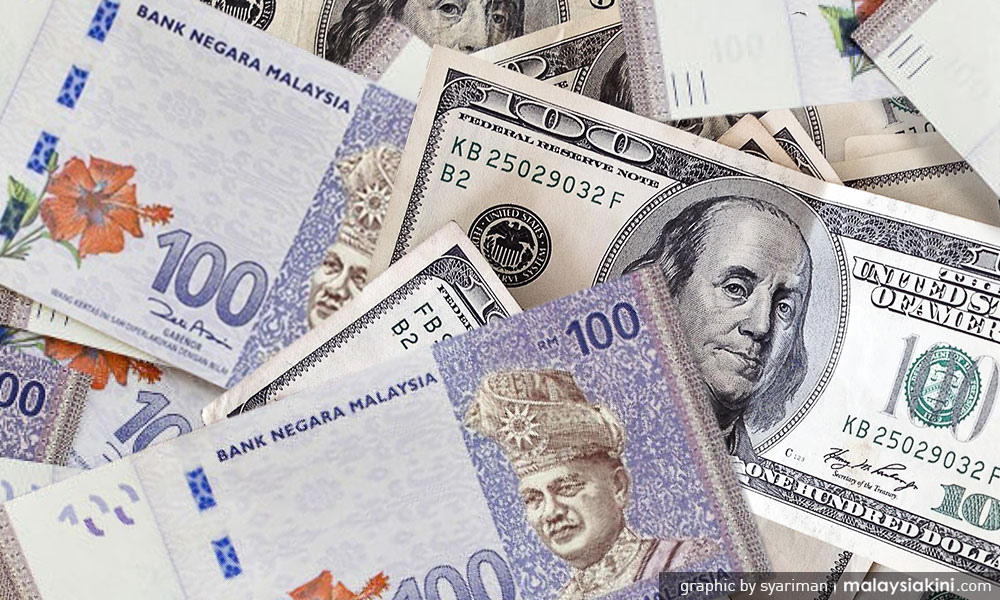
The value of the ringgit is becoming more stable with the depreciation level standing at 2.9 percent on Dec 13, 2018.
Deputy Finance Minister Amiruddin Hamzah during the winding-up session for the ministry at the Dewan Negara today said the ringgit depreciation against the US dollar was shrinking, from 4.4 percent in the second half of this year to 2.5 percent in the third quarter and 1.0 percent in the fourth quarter up to Dec 13, 2018.
"The ringgit performance is also becoming more stable compared with other regional currencies whose value have depreciated between 0.1 percent and 10.7 percent compared with the US dollar.
"Countries like Malaysia and Thailand which have strong economic fundamentals such as current account surplus and low inflation rate did not experience sudden depreciation in their currencies and showed better performance compared with other currencies,” he said.
However, he said the government through Bank Negara would always make sure that the ringgit is stable via proactive measures to ensure sufficient liquidity and a resilient market.
"In the long term, the ringgit value would be driven particularly by the strength of the country’s economic fundamentals. Hence, Malaysia needs to focus efforts on increasing its economic resilience by diversifying revenue sources and strengthen its fiscal position,” he said.
On how far the government is monitoring the ringgit value following the possibility of the US increasing its interest rate soon, Amiruddin said Bank Negara’s current policy had and would assist Malaysia to withstand in times of uncertainty and volatility without affecting the country’s economy.
"This policy including a flexible ringgit exchange rate will play an important role as an external shock absorber without affecting the domestic economic activities.
"Secondly, by ensuring the financial markets function in an orderly manner by taking proactive measures to make sure liquidity are sufficient, reduce speculation to avoid significant volatility in the ringgit, and lastly, using international reserves in accordance to the needs to stabilise the market,” he explained.
In the long term, the government through Bank Negara would continue to review the market development measures to increase the resilience of the domestic money market against any significant volatilities.
- Bernama


No comments:
Post a Comment
Note: Only a member of this blog may post a comment.